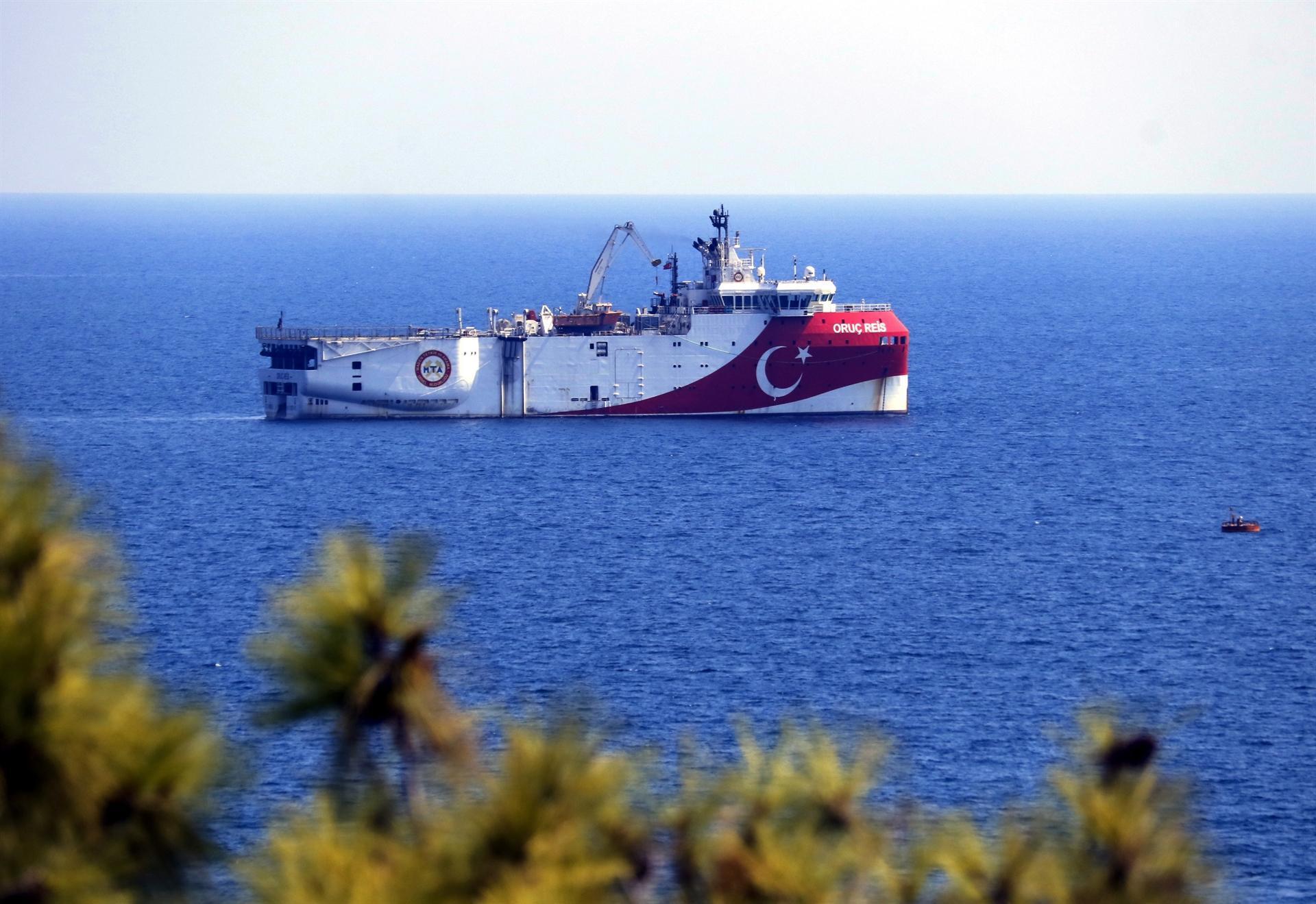
The Turkish foreign minister on Sept. 14 said the country's seismic exploration vessel operating in the Eastern Mediterranean returned home to replenish supplies and maintenance.
Turkey's seismic research vessel, Oruç Reis, operating in the eastern Mediterranean, has returned home to replenish supplies and for maintenance and its return did not mean a “concession” in Turkey’s exploration policy in the region, Mevlüt Çavuşoğlu said.
Turkey's Oruç Reis survey vessel returns to Antalya, easing tension in east Med

Turkey is open for negotiations with Greece without preconditions to resolve the dispute concerning the eastern Mediterranean, but if Athens insists, then Ankara will come up with the same, Çavuşoğlu said.
“The two neighboring countries can meet directly. The statements made by the Greek Prime Minister are positive and moderate. But if he insists on the preconditions to sit at the table with us, we will put forward our prerequisites,” he told NTV broadcaster.
Turkey’s conditions could be discussed later, but the tension between Turkey and Greece will not end unless Athens gives up from Seville map and show respect to the continental shelf, the minister said.
“Greece can perceive it as a step back in the face of our determination,” he said. “It is suffering the insecurities of a small country.” The Turkish Energy Ministry said in a separate statement that after undergoing “examination and care, the vessel would continue its seismic search and research activities.”
Çavuşoğlu and the Energy Ministry said research ships Barbaros Hayreddin, currently sailed east of Cyprus and Yavuz in waters southwest of Cyprus, would be continuing their work.
Elaborating on an upcoming EU meeting on Sept.24-25, the minister said he did not expect a new round of sanctions against Turkey, but sure there was a possibility.
Responding to Russian Foreign Minister Sergey Lavrov’s mediation call on the Cyprus dispute, Çavuşoğlu said the Russian mediation could take place only between Turkish and Greek Cypriots as Turkey is not an interlocutor of Greek Cypriots.
'Turkey will not compromise on rights in E Med'
The Turkish defense minister said on Sept. 14 that Turkey "sacrificing its rights" in the eastern Mediterranean is "out of question."
“We have rights, concerns, and interests in the Eastern Mediterranean. Some countries are making counter moves and taking actions against them. We follow them with great patience,” Hulusi Akar said following the Distinguished Observer Day activities of the Mediterranean Storm - a five-day military exercise.
Stressing that Turkey will resolutely continue to do what is necessary to protect its rights, Akar said it is out of the question to sacrifice and give up rights in the region.
“We are in favor of peace, dialogue, negotiations and solving the issue by political means,” Akar said, adding they will not allow any fait accompli and unfairness against the rights of Turkey and the Turkish Republic of Northern Cyprus (TRNC).
'Peaceful solution in E Med is possible'
Meanwhile, Presidential Spokesperson İbrahim Kalın reiterated Turkey's position that a peaceful resolution of disputes in the Eastern Mediterranean is possible.
"Inclusive and rational approaches based on fairness will contribute constructively. Turkey has no designs on anyone's land but is determined not to allow anyone to be unfair," Kalın said in a tweet.
Kalın underlined that "as a strong actor, Turkey will always protect its rights and interests both on the table and in the field under the leadership of President Recep Tayyip Erdoğan."
He also urged Greece and the EU countries to take mutual steps and not to waste the chance for diplomacy.
Tensions in the region have been high since Turkey resumed energy exploration in the Eastern Mediterranean last month, after Greece and Egypt signed a controversial maritime delimitation deal, spurning Ankara's goodwill gesture of halting a previous search.
Despite opposition from Greece and some other countries, Turkey has repeatedly extended its research vessel Oruc Reis's energy exploration in an area within Turkey's continental shelf, with the latest announced on Aug. 31, this time to last until Sept. 12.
Turkey has consistently opposed Greece's efforts to declare an exclusive economic zone based on small islands near Turkish shores, violating the interests of Turkey, the country with the longest coastline in the Mediterranean.
Ankara has also stressed energy resources near the island of Cyprus must be shared fairly between the Turkish Republic of Northern Cyprus and the Greek Cypriot administration.